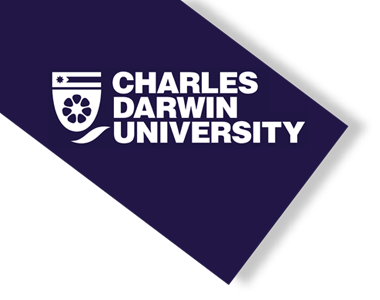Bachelor of Accounting
Charles Darwin University
About
This accounting course provides students with a sound knowledge base in financial accounting, management accounting, taxation, business law and finance.
This vocationally oriented and student-centred course provides students with employment and professional skills needed in a rapidly changing business environment.
It allows for flexibility of study and prepares students for careers in a variety of business fields.
In addition, communication, presentation and problem-solving skills are emphasised.
Students have a wide choice of business units from which they can choose electives that will complement their personal interests and career options.
Alternatively students may select electives from other disciplines including language studies, anthropology, history, social science, indigenous studies, applied science and engineering.
The flexibility of Charles Darwin University courses permits students with satisfactory progress to move from an enrolment in the Bachelor of Accounting to the Bachelor of Commerce without penalty.
Structure
Common(2 units) - 20
Common units totalling 20 credit points as detailed below: CUC107 Cultural Intelligence and Capability (compulsory) Plus either: CUC100 Academic Literacies (recommended for this course) or CUC106 Design and Innovation: Communicating Technology Select Common Units to find out more about individual units or advanced standing options.
Compulsory Core(18 units) - 180
Compulsory Core units totalling 180 credit points as detailed below: CMA101 Introduction to Accounting (#see below - replaced by ACT102 from 2016) CMC101 Business Communications (recoded to COM105 from 2016) CML101 Introduction to Business Law (recoded to LAW105 from 2016) CMM101 Introduction to Management (recoded to MAN105 from 2016) CMQ101 Quantitative Analysis for Business (recoded to QAB105 from 2016) CME101 Principles of Economics (recoded to ECO105 from 2016 and recoded to ECO107 from 2020) CMA201 Principles of Financial Accounting (recoded to ACT201 from 2016) (no longer available) CMA202 Management Accounting (recoded to ACT202 from 2016) CMA204 Financial Accounting Applications (replaced by ACT204 from 2016) CMF201 Business Finance (recoded to FIN205 from 2016) CML201 Commercial and Corporate Law for Accountants (recoded to LAW205 from 2016) CMA301 Accounting Theory and Contemporary Issues (recoded to ACT301 from 2016) CMA302 Strategic Management Accounting (recoded to ACT302 from 2016) CMA303 Principles of Auditing (recoded to ACT303 from 2016) CMA304 Computer-Based Accounting Systems (recoded to ACT304 from 2016) CMA305 Corporate Accounting (recoded to ACT305 from 2016) CMA306 Professional Practice Project (recoded to ACT306 from 2016) (not offered 2018) CMT301 Taxation (recoded to TAX305 from 2016) # Students who have not completed CMA101 should consider transferring with full credit to the newly accredited course WACC01 in 2016.
General Electives(4 units) - 40
Units totalling 40 credit points may be selected from undergraduate units offered by the University.
When selecting electives choose units at a suitable level. The first number in each code indicates the year level at which the subject is taught. Undergraduate units are coded at 100 to 300 level, therefore units coded as CMA1xx, CMA2xx, and CMA3xx would be first, second and third year units respectively.
- 240
Total Credit Points
Entry requirements
Admission requirements are met by one of the following: Successful completion of the Northern Territory Certificate of Education and Training (or equivalent) and the awarding of an Australian Tertiary Admissions Rank (ATAR) of at least 60*. Successful completion of a national qualification at Certificate IV level or higher. Successful completion of at least 0.5 year of full-time study (or equivalent) of a higher education degree/diploma. Overseas secondary or tertiary qualifications considered equivalent to the above Australian qualifications. Attainment of a STAT Multiple Choice score of 135 (or a score of 145 if prior to May 2010). Successful completion of the Tertiary Enabling Program, the Preparation for Tertiary Success courses, or other recognised tertiary preparation course. Submission of an acceptable personal competencies statement and/or employment experience. * After any applicable adjustment factors have been applied.
Institution
